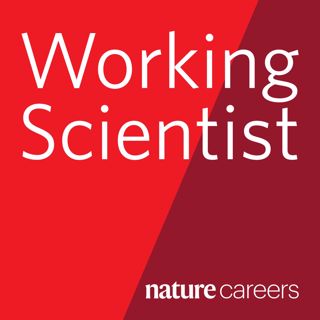Om avsnittet
Many grant funding decisions are random, with luck playing a large part. How can the system be improved, particularly when funds are tight? In the final episode of our six-part series on funding, Feric Fang, a professor in the departments of laboratory medicine and microbiology at the University of Washington, Seattle, describes how a two-tier "modified lottery" could be a fairer process, with grants randomly prioritised to applications that had some merit but did not attract funding first time round.New Zealand's Health Research Council already operates a similar system, says Vernon Choy, the council's direct of research investments and contracts.Its Explorer Grants panel does not discuss rankings but instead judges if an application's proposals are viable and if they meet an agreed definition of "transformative." These applications then go into a pool and a random number generator is applied to to allocate funding based on the budget available.Because applications are anonymised, Choy says there is no bias against a particular institution or research team, allowing young and inexperienced researchers to compete more fairly against senior colleagues.Johan Bollen, a professor at Indiana University's school of informatics, computing and engineering, describes how a Self Organising Funding Allocation system (SOFA) would work, removing the burden of writing grant applications."What if we just give everybody a pot of money at the beginning of the year and then redistribute a certain percentage to others?" he asks.Paid content: European Research Council"We are open to the world" says ERC president Jean-Pierre Bourguignon. Its grantees straddle 80 nationalities and the organisation has signed collaboration agreements with 11 countries, including China, India, Brazil, Australia and Japan.Helen Tremlett, who leads the pharmacoepidemiology in multiple sclerosis research group at the University of British Colombia, Canada, spent time in the lab of an ERC grantee at the Max Planck Institute in Munich, Germany. This experience, along with publication of a 2011 paper in Nature looking at how the gut microbiome may be influential in triggering the animal model of MS, had career-changing consequences, leading her down a new research path. Hosted on Acast. See acast.com/privacy for more information.
Senaste avsnitten

How we slashed our lab’s carbon footprint

Meet the retired scientists who collaborate with younger colleagues

A dumpster full of mercury and other things to avoid: lab closures made simple

Pension planning and psychosocial support: how institutions can help academics at the late career stage

“Who am I if not a scientist?” How to find identity and purpose in retirement

Choose your own adventure: navigating retirement after an academic career

The last few miles: how to prepare for the late-career stage in science

Counting the cost of fashion’s carbon footprint

Why female students at an inner London school are seeing scientists in a different light

